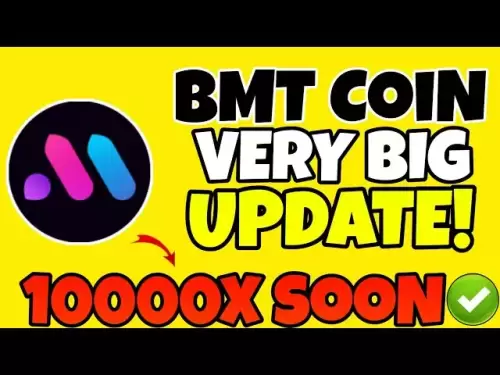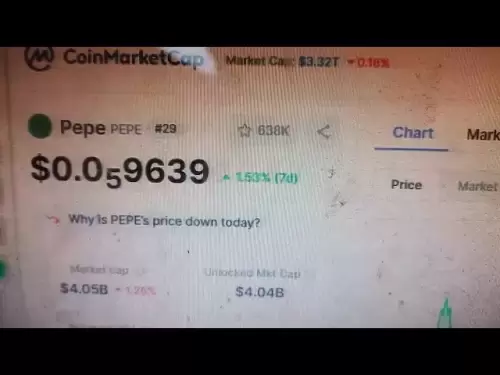-
 Bitcoin
Bitcoin $108,641.9143
0.44% -
 Ethereum
Ethereum $2,539.5956
0.97% -
 Tether USDt
Tether USDt $1.0007
0.04% -
 XRP
XRP $2.2777
2.50% -
 BNB
BNB $660.2073
0.79% -
 Solana
Solana $151.1059
2.08% -
 USDC
USDC $1.0004
0.05% -
 TRON
TRON $0.2838
-0.03% -
 Dogecoin
Dogecoin $0.1698
3.57% -
 Cardano
Cardano $0.5835
1.74% -
 Hyperliquid
Hyperliquid $39.4787
0.07% -
 Sui
Sui $2.9330
1.09% -
 Bitcoin Cash
Bitcoin Cash $489.1023
1.31% -
 Chainlink
Chainlink $13.3775
1.61% -
 UNUS SED LEO
UNUS SED LEO $9.0201
-0.04% -
 Avalanche
Avalanche $18.2176
2.06% -
 Stellar
Stellar $0.2417
1.98% -
 Toncoin
Toncoin $2.9355
7.33% -
 Shiba Inu
Shiba Inu $0.0...01181
3.23% -
 Litecoin
Litecoin $87.9775
1.54% -
 Hedera
Hedera $0.1569
1.54% -
 Monero
Monero $316.0995
1.13% -
 Polkadot
Polkadot $3.3970
1.36% -
 Dai
Dai $1.0002
0.02% -
 Ethena USDe
Ethena USDe $1.0002
0.00% -
 Bitget Token
Bitget Token $4.4094
0.33% -
 Uniswap
Uniswap $7.4035
6.32% -
 Pepe
Pepe $0.0...01016
4.88% -
 Aave
Aave $275.5935
1.55% -
 Pi
Pi $0.4565
-0.89%
What is the difference between OKX's currency trading and contract trading?
OKX offers currency trading, where you buy/sell cryptos directly, and contract trading, which involves futures/options with leverage and higher risk. Choose based on your experience and goals.
Apr 14, 2025 at 10:29 am
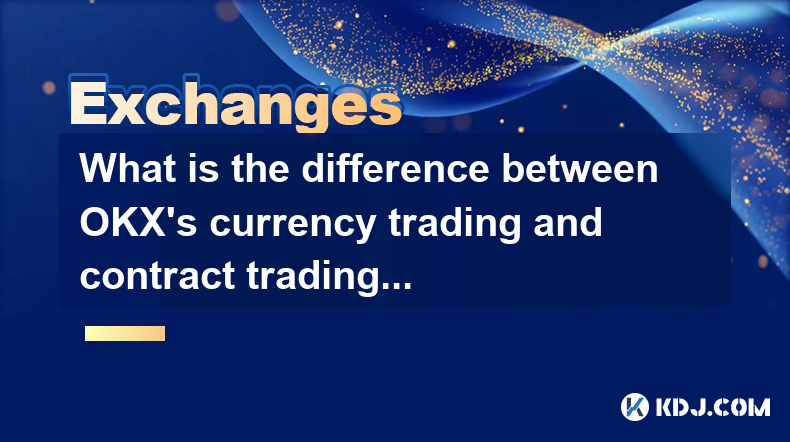
Introduction to OKX Trading
OKX is a leading cryptocurrency exchange that offers a variety of trading options, including currency trading and contract trading. Understanding the differences between these two types of trading is crucial for traders looking to maximize their potential in the crypto market. Currency trading on OKX involves the direct exchange of one cryptocurrency for another, while contract trading involves trading contracts that derive their value from the underlying cryptocurrencies.
Basics of Currency Trading on OKX
Currency trading, also known as spot trading, is the most straightforward form of trading on OKX. In this type of trading, you buy or sell cryptocurrencies at the current market price. The primary goal of currency trading is to profit from the price movements of cryptocurrencies. When you engage in currency trading, you own the actual cryptocurrencies you purchase, and you can hold them in your OKX wallet or transfer them to another wallet.
- To start currency trading on OKX, you need to deposit funds into your OKX account. You can do this by transferring cryptocurrencies from another wallet or by purchasing cryptocurrencies directly through OKX's fiat gateway.
- Once your account is funded, navigate to the spot trading section of the OKX platform. Here, you can select the trading pair you wish to trade, such as BTC/USDT or ETH/BTC.
- Place your order by specifying the amount of cryptocurrency you want to buy or sell and the price at which you want to execute the trade. You can choose between a market order, which executes immediately at the current market price, or a limit order, which executes only when the market reaches your specified price.
Understanding Contract Trading on OKX
Contract trading on OKX, also known as derivatives trading, involves trading contracts that derive their value from the price of an underlying cryptocurrency. The two main types of contract trading on OKX are futures and options. Futures contracts allow you to speculate on the future price of a cryptocurrency, while options contracts give you the right, but not the obligation, to buy or sell a cryptocurrency at a predetermined price.
- To start contract trading on OKX, you need to transfer funds from your spot wallet to your contract wallet. This can be done within the OKX platform.
- Once your contract wallet is funded, navigate to the contract trading section. Here, you can select the type of contract you want to trade, such as perpetual futures or options.
- Place your order by specifying the amount of the contract you want to buy or sell and the price at which you want to execute the trade. Similar to spot trading, you can use market orders or limit orders.
Key Differences Between Currency Trading and Contract Trading
There are several key differences between currency trading and contract trading on OKX that traders need to be aware of. The most significant difference is the level of risk involved. Contract trading, particularly futures and options, can be more complex and carry higher risk due to leverage and expiration dates.
- Ownership: In currency trading, you own the actual cryptocurrencies you purchase. In contract trading, you own a contract that derives its value from the underlying cryptocurrency.
- Leverage: Contract trading often involves the use of leverage, allowing you to control a larger position with a smaller amount of capital. This can amplify both gains and losses.
- Expiration: Futures and options contracts have expiration dates, after which they must be settled. Currency trading does not involve expiration dates.
- Purpose: The primary purpose of currency trading is to buy and hold cryptocurrencies or to profit from short-term price movements. Contract trading is used for speculation and hedging.
Advantages and Disadvantages of Currency Trading
Currency trading on OKX has its own set of advantages and disadvantages that traders should consider before engaging in this type of trading. One of the main advantages is the simplicity of the process. Buying and selling cryptocurrencies directly is straightforward and easy to understand.
Advantages:
- Simplicity: Currency trading is easy to understand and execute.
- Ownership: You own the actual cryptocurrencies you purchase.
- Lower Risk: Generally, currency trading involves lower risk compared to contract trading.
Disadvantages:
- Limited Leverage: Currency trading typically does not involve leverage, which can limit potential gains.
- No Hedging: Currency trading does not offer the same hedging capabilities as contract trading.
Advantages and Disadvantages of Contract Trading
Contract trading on OKX offers different advantages and disadvantages compared to currency trading. One of the main advantages is the ability to use leverage, which can amplify potential gains. However, this also increases the risk of significant losses.
Advantages:
- Leverage: Contract trading allows you to use leverage, potentially increasing your returns.
- Hedging: You can use contract trading to hedge against price movements in the underlying cryptocurrencies.
- Flexibility: Contract trading offers more flexibility in terms of trading strategies and options.
Disadvantages:
- Complexity: Contract trading is more complex and can be difficult for beginners to understand.
- Higher Risk: The use of leverage and expiration dates increases the risk of significant losses.
- Settlement: Contracts must be settled at expiration, which can add an additional layer of complexity.
Choosing Between Currency Trading and Contract Trading
When deciding between currency trading and contract trading on OKX, it's important to consider your trading goals, risk tolerance, and level of experience. If you are new to trading or prefer a simpler approach, currency trading may be the better option. It allows you to own the actual cryptocurrencies and involves lower risk.
If you are more experienced and looking for higher potential returns, contract trading could be more suitable. It offers the ability to use leverage and provides more advanced trading options. However, it's essential to understand the increased risk and complexity involved.
Consider your risk tolerance: If you are risk-averse, currency trading may be more appropriate. If you are willing to take on more risk for potentially higher returns, contract trading could be the better choice.
Evaluate your trading goals: If your goal is to buy and hold cryptocurrencies or profit from short-term price movements, currency trading is likely the best option. If you want to speculate on future price movements or hedge your positions, contract trading is more suitable.
Frequently Asked Questions
Q: Can I switch between currency trading and contract trading on OKX?
A: Yes, you can switch between currency trading and contract trading on OKX. To do this, you need to transfer funds between your spot wallet and your contract wallet within the OKX platform. This can be done easily through the wallet section of the platform.
Q: What are the fees associated with currency trading and contract trading on OKX?
A: OKX charges different fees for currency trading and contract trading. For currency trading, OKX typically charges a maker fee and a taker fee, which vary based on your trading volume and whether you are using the platform's native token, OKB. For contract trading, fees are usually charged on the opening and closing of positions, with different rates for makers and takers. It's important to check the fee schedule on OKX's website for the most up-to-date information.
Q: Is it possible to use leverage in currency trading on OKX?
A: No, leverage is not available in currency trading on OKX. Leverage is a feature of contract trading, specifically futures and options, which allows you to control a larger position with a smaller amount of capital. If you want to use leverage, you need to engage in contract trading.
Q: How can I manage the risks associated with contract trading on OKX?
A: Managing risks in contract trading involves several strategies. First, always use stop-loss orders to limit potential losses. Second, start with smaller positions to gain experience before increasing your exposure. Third, diversify your trading portfolio to spread risk across different assets. Finally, continuously educate yourself about the market and the specific contracts you are trading to make informed decisions.
Disclaimer:info@kdj.com
The information provided is not trading advice. kdj.com does not assume any responsibility for any investments made based on the information provided in this article. Cryptocurrencies are highly volatile and it is highly recommended that you invest with caution after thorough research!
If you believe that the content used on this website infringes your copyright, please contact us immediately (info@kdj.com) and we will delete it promptly.
- Litecoin Breakout Watch: What Traders Need to Know Now
- 2025-07-06 16:50:13
- Bitcoin, Solana, Ethereum: Decoding the Latest Buzz on the Blockchain
- 2025-07-06 16:50:13
- Widnes Resident's 50p Could Be Your Ticket to Easy Street: Rare Coin Mania!
- 2025-07-06 16:55:13
- Bitcoin, Solaris Presale, and Token Rewards: What's the Buzz?
- 2025-07-06 16:55:13
- Ethereum Under Pressure: Price Drop Amid Global Uncertainties
- 2025-07-06 17:00:13
- XRP, SEC Case, and Prosperity: A New Era for XRP Holders?
- 2025-07-06 17:10:13
Related knowledge
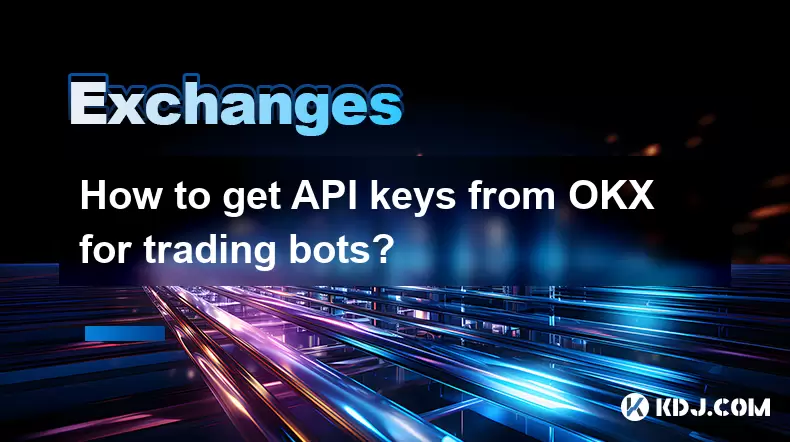
How to get API keys from OKX for trading bots?
Jul 03,2025 at 07:07am
Understanding API Keys on OKXTo interact with the OKX exchange programmatically, especially for building or running trading bots, you need to obtain an API key. An API (Application Programming Interface) key acts as a secure token that allows your bot to communicate with the exchange's servers. On OKX, these keys come with customizable permissions such ...
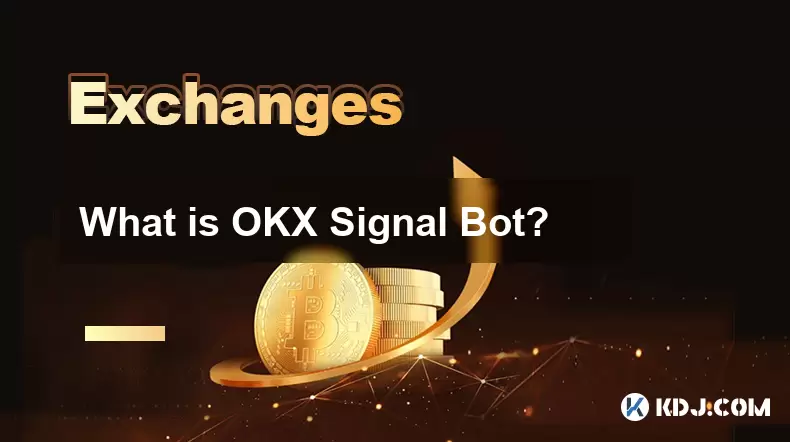
What is OKX Signal Bot?
Jul 02,2025 at 11:01pm
Understanding the Basics of OKX Signal BotThe OKX Signal Bot is a feature within the OKX ecosystem that provides users with automated trading signals and execution capabilities. Designed for both novice and experienced traders, this bot helps identify potential trading opportunities by analyzing market trends, technical indicators, and historical data. ...
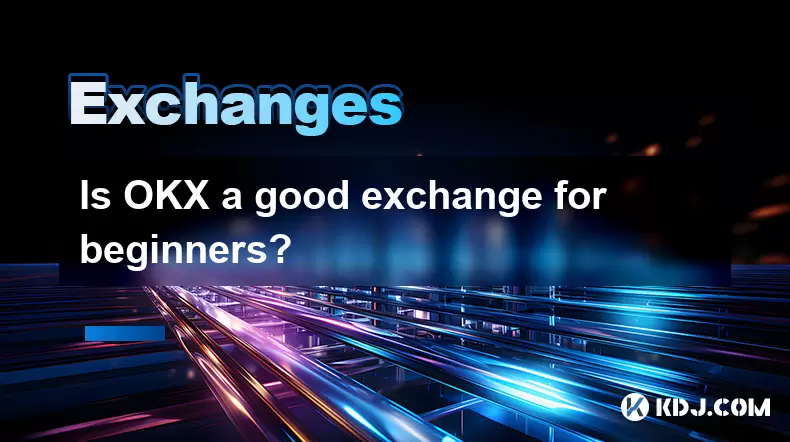
Is OKX a good exchange for beginners?
Jul 03,2025 at 05:00pm
What Is OKX and Why Is It Popular?OKX is one of the leading cryptocurrency exchanges globally, known for its robust trading infrastructure and a wide variety of digital assets available for trading. It supports over 300 cryptocurrencies, including major ones like Bitcoin (BTC), Ethereum (ETH), and Solana (SOL). The platform has gained popularity not onl...
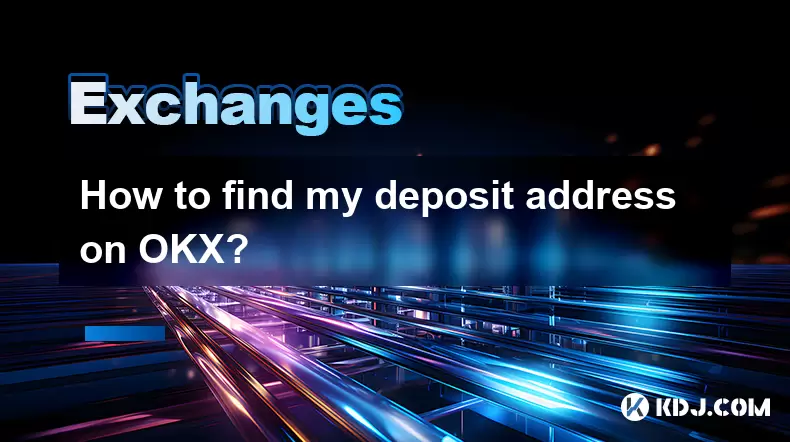
How to find my deposit address on OKX?
Jul 06,2025 at 02:28am
What is a Deposit Address on OKX?A deposit address on OKX is a unique alphanumeric identifier that allows users to receive cryptocurrencies into their OKX wallet. Each cryptocurrency has its own distinct deposit address, and using the correct one is crucial to ensure funds are received properly. If you're looking to transfer digital assets from another ...
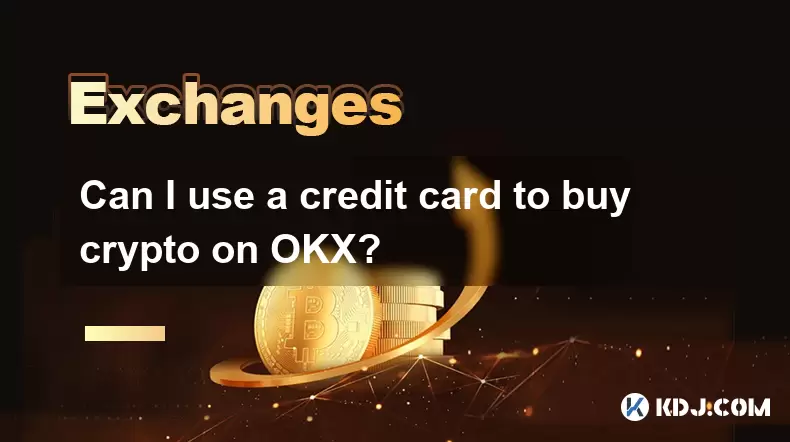
Can I use a credit card to buy crypto on OKX?
Jul 04,2025 at 04:28am
Understanding OKX and Credit Card PaymentsOKX is one of the leading cryptocurrency exchanges globally, offering a wide range of services including spot trading, derivatives, staking, and more. Users often wonder whether they can use a credit card to buy crypto on OKX, especially if they are new to the platform or looking for quick ways to enter the mark...
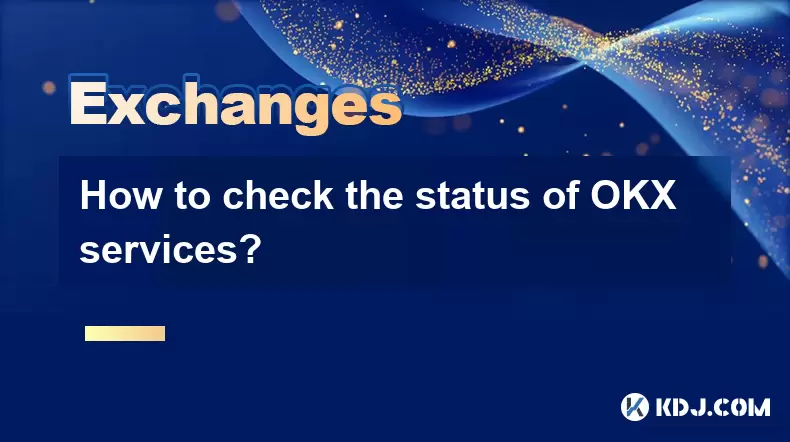
How to check the status of OKX services?
Jul 02,2025 at 11:14pm
What is OKX, and Why Checking Service Status Matters?OKX is one of the world’s leading cryptocurrency exchanges, offering services such as spot trading, futures trading, staking, and more. With millions of users relying on its platform for daily transactions, it's crucial to know how to check the status of OKX services. Downtime or maintenance can affec...

How to get API keys from OKX for trading bots?
Jul 03,2025 at 07:07am
Understanding API Keys on OKXTo interact with the OKX exchange programmatically, especially for building or running trading bots, you need to obtain an API key. An API (Application Programming Interface) key acts as a secure token that allows your bot to communicate with the exchange's servers. On OKX, these keys come with customizable permissions such ...

What is OKX Signal Bot?
Jul 02,2025 at 11:01pm
Understanding the Basics of OKX Signal BotThe OKX Signal Bot is a feature within the OKX ecosystem that provides users with automated trading signals and execution capabilities. Designed for both novice and experienced traders, this bot helps identify potential trading opportunities by analyzing market trends, technical indicators, and historical data. ...

Is OKX a good exchange for beginners?
Jul 03,2025 at 05:00pm
What Is OKX and Why Is It Popular?OKX is one of the leading cryptocurrency exchanges globally, known for its robust trading infrastructure and a wide variety of digital assets available for trading. It supports over 300 cryptocurrencies, including major ones like Bitcoin (BTC), Ethereum (ETH), and Solana (SOL). The platform has gained popularity not onl...

How to find my deposit address on OKX?
Jul 06,2025 at 02:28am
What is a Deposit Address on OKX?A deposit address on OKX is a unique alphanumeric identifier that allows users to receive cryptocurrencies into their OKX wallet. Each cryptocurrency has its own distinct deposit address, and using the correct one is crucial to ensure funds are received properly. If you're looking to transfer digital assets from another ...

Can I use a credit card to buy crypto on OKX?
Jul 04,2025 at 04:28am
Understanding OKX and Credit Card PaymentsOKX is one of the leading cryptocurrency exchanges globally, offering a wide range of services including spot trading, derivatives, staking, and more. Users often wonder whether they can use a credit card to buy crypto on OKX, especially if they are new to the platform or looking for quick ways to enter the mark...

How to check the status of OKX services?
Jul 02,2025 at 11:14pm
What is OKX, and Why Checking Service Status Matters?OKX is one of the world’s leading cryptocurrency exchanges, offering services such as spot trading, futures trading, staking, and more. With millions of users relying on its platform for daily transactions, it's crucial to know how to check the status of OKX services. Downtime or maintenance can affec...
See all articles





















